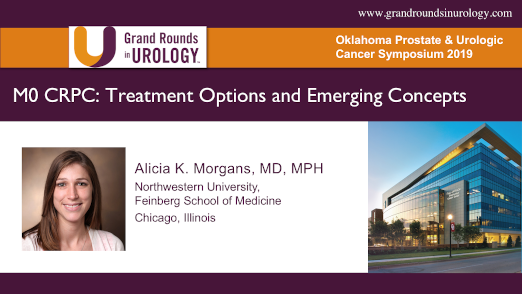Recognizing and Managing the Side Effects of Androgen Deprivation Therapy
Alicia K. Morgans, MD, MPH, Associate Professor of Medicine in Hematology and Oncology at the Robert H. Lurie Comprehensive Cancer Center of Northwestern University, discusses the side effects of androgen deprivation therapy (ADT) and how urologists can mitigate them. She observes that up to 40% of non-metastatic prostate cancer patients are treated with ADT, and those patients tend to be older and have more comorbidities. Studies have suggested that comorbidities and advanced age interact with ADT to increase risk of cardiovascular disease and diabetes. ADT is also associated with increased risk of depression, cognitive changes, and possibly dementia, as well as greater frailty in patients. Urologists should be aware of these side effects so that they can assess their patients’ risk and plan accordingly with multidisciplinary teams to reduce mortality and morbidity and improve quality of life.
Read More


